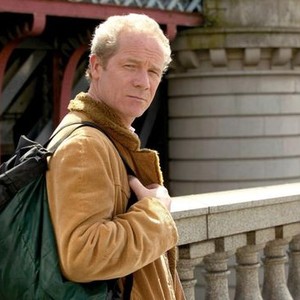

In this movie he plays a man with far more emotional 'baggage' on him than his other characters, and I think he does a great job here really. And he certainly looks, and acts, the part as he has a very intimidating presence. His performance was certainly a pleasant surprise, because Mullan, almost always, tends to play these tough, mean-looking gangster types. This is another one of those types of films and I'd say this was pretty good, all due in part to Peter Mullan's performance. Gary F.Apparently the U.K has a propensity for these sentimental, sometimes even cloying, crowd-pleasing movies where blue-collar workers, or a community, fight against the odds in order to overcome some emotional baggage. Still, this no-frills DVD release offers a best-possible print in terms of both sound and picture, and both long-time fans and newcomers will adore it.

It would seem these scenes are gone forever, and more's the pity. The film was originally intended to be released in a three hour version-but in the wake of several box office disasters for large scale musicals both Minnelli and the studio thought better of it and cut the film significantly. Add in such beautifully orchestrated and performed songs as "It's Lovely Up Here," "Come Back To Me," and the title piece-and when all is said and done ON A CLEAR DAY is a very enjoyable film indeed. LOUIS, and he endows the film with his very elegant eye the "past life" sequences, in which designer Cecil Beaton had a hand, are particularly beautiful. This was the last musical for Vincent Minnelli, perhaps the greatest director of golden age musicals and creator of such films as MEET ME IN ST. The remaining cast, which includes a very young Jack Nicholson and Bob Newhart, is equally fine. Although it seems many Americans fail to see the appeal of the great French singer and actor Yves Montand, he handles his songs with the same world-weary style that first brought him to the attention of the legendary Edith Piaf-and it proves a remarkably effective foil for Streisand, setting off her expansive performance to perfection. Streisand is memorably fresh in the role of Daisy and performs her numbers with remarkable youthful zeal and a flawless artistry she is a tremendous amount of fun to watch and an endless pleasure to hear. Charbot (Yves Montand.) But it happens that Daisy, for all her goofiness, is unexpectedly gifted: she can find lost items, she knows when the telephone will ring-and once under hypnosis she stuns Charbot by transforming into Melinda, a woman who lived, loved, and died more than a century before. The story concerns a scatter-brained young woman named Daisy Gamble (Barbra Streisand) who is desperate to quit smoking and who lays siege to a noted hypnotist Dr.

This is a pity, for although it cannot be classed among the truly great musical musicals it is nonetheless a very good one, imaginatively filmed and beautifully performed. Koch determined that if the film still exists, it's probably in a mislabelled canister.īased on the marginally successful 1965 Broadway musical with book and lyrics by Alan Jay Learner and a solid score by Burton Lane, the 1970 ON A CLEAR DAY YOU CAN SEE FOREVER was no box office disaster-but it was a disappointment, failing to draw a broad audience and performing much more poorly than any one had imagined. Koch asked Streisand and Minnelli's widow if they had remnants of the cut footage, but neither did. Koch conducted a search for the deleted footage in 1994, particularly Nicholson's song, which he wanted to showcase during the AFI tribute to the actor. In addition to all but the briefest of Jack Nicholson's scenes being cut, a musical number sung by him and Streisand, "Who Is There Among Us Who Knows?," was also cut, as well as "Wait Till We're Sixty-Five," a duet between Larry Blyden and Barbra Streisand. According to the 1974 biography "Barbra Streisand: The First Decade", this was originally envisioned as a three-hour "road show" extravaganza, and included many sequences of Daisy's other lives (photos of which were printed in some pre-release promotions), but director Vincente Minnelli and the studio felt it would be too long, especially since musicals had already begun to fail at the box office.


 0 kommentar(er)
0 kommentar(er)
